Natural Resources Wales objects to £1bn M4 relief route
- Published
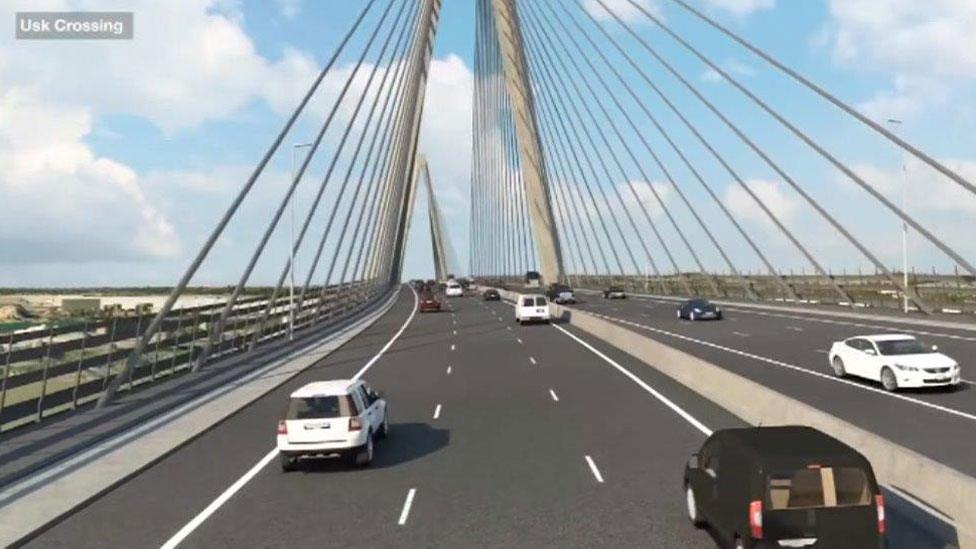
How the motorway would look over the River Usk in Newport
The statutory body in charge of the Welsh environment has submitted a 95-page objection to the M4 relief road.
Natural Resources Wales (NRW) , externalhas concerns over the impact on nature sites and species ranging from water voles to bats under the plans as they stand.
Conservation groups have called it a significant blow to the £1bn project.
The objection comes as part of consultation into the "black route," aimed at cutting traffic congestion.
For the motorway to go ahead the Welsh Government would have to apply to NRW for various licences and permissions covering protected species, flooding and land designated for conservation.
But NRW stated it would object to the plans in their current form.
The concerns are centred around the impact of the proposed motorway around Newport on protected species including otter and dormice and Sites of Special Scientific Interest on the Gwent Levels.
The plans - first put forward 25 years ago - are for a 15-mile (24km) motorway and six-lane bridge over the River Usk to ease problems from the bottleneck at the Brynglas tunnels.
The consultation period for objections to the preferred "black route" option ended earlier this month.
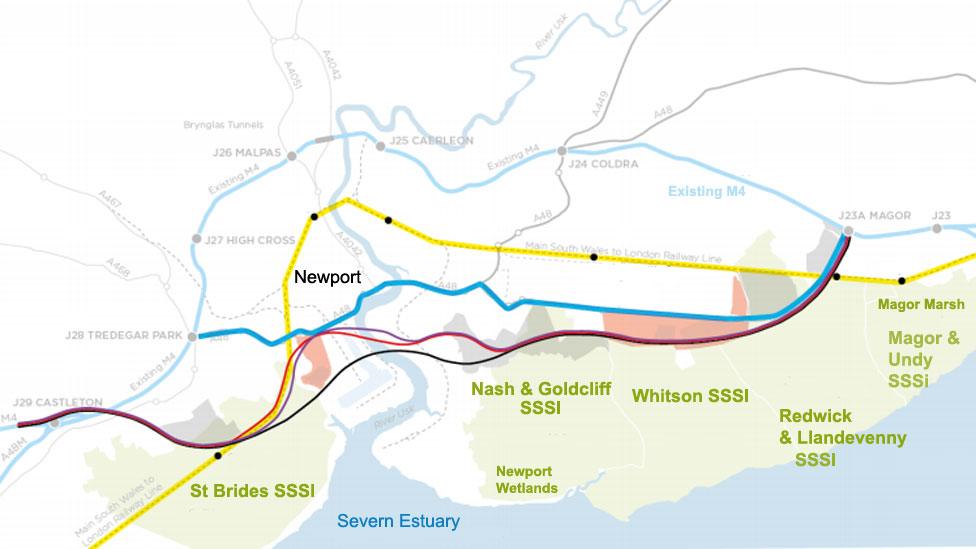
Alternative M4 relief road routes including the black and blue options, with the nature sites
NRW also assesses that the scheme's current draft orders and environmental statement "do not fully demonstrate that the consequences of tidal flooding can be acceptably managed".
The document from NRW's head of operations for south east Wales John Hogg said that the organisation could change its stance if its concerns are taken into account and additional information provided.

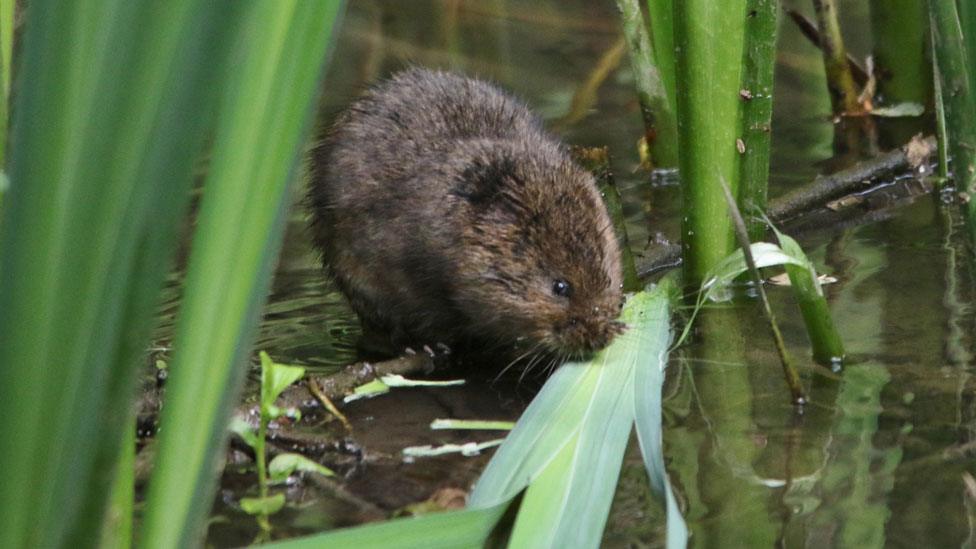
Concerns have been raised about the effects on water voles
CONCERNS ABOUT IMPACT ON NATURE HABITATS AND SPECIES:
"Unable to agree that adverse effects can be avoided" on the Gwent Levels Sites of Special Scientific Interest (SSSIs) at: Redwick and Llandevenny, Whitson, Nash and Goldcliff and St Brides
Unable to rule out indirect adverse effects on Gwent Levels SSSIs at: Magor and Undy, Magor Marsh, Newport Wetlands and Rumney and Peterstone
Concerns about effects on: Dormice; water vole; greater crested newt; otter and bats.

Further consultation documents from environmental groups, seen by BBC Wales, have accused the Welsh Government of undermining the credibility of its own laws, designed to promote sustainable development.
One of the most strongly worded responses comes from climate change scientists Dr Steven Glynn of the Sustainable Change Co-operative and Professor Kevin Anderson of Manchester's Tyndall Centre for Climate Research.
They write that "the M4 scheme is emblematic of a failure to acknowledge the challenges enshrined in the Paris Agreement" to limit global warming.
"If it proceeds it will illustrate the Welsh Government's disregard for its climate change commitments and the impact of unchecked emissions on future generations of Welsh citizens," they wrote.
The Welsh Government has argued that the relief road is justified and vital for Wales' economic future.
Speaking on BBC Radio Wales' Sunday Supplement programme, First Minister Carwyn Jones said that the process of developing the "black route" was continuing and would go to a public inquiry.
"We will continue to look at this but there doesn't seem to be an alternative," he said.
"It has to be dealt with as it is the biggest traffic problem we have in Wales."
He dismissed the alternative "blue route" option as being too close to people's homes.
There are hopes work on the new motorway could start in 2018.
- Published16 May 2016

- Published13 May 2016
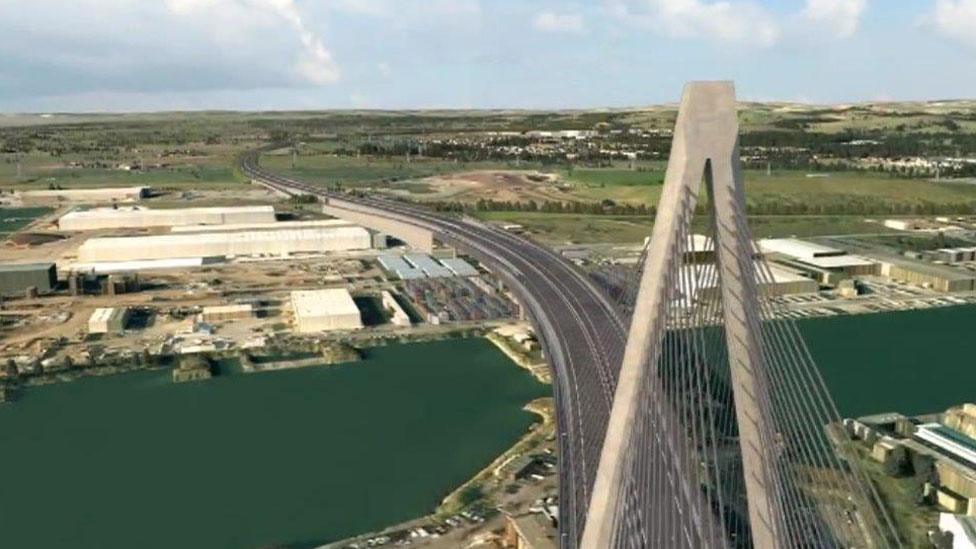
- Published11 May 2016
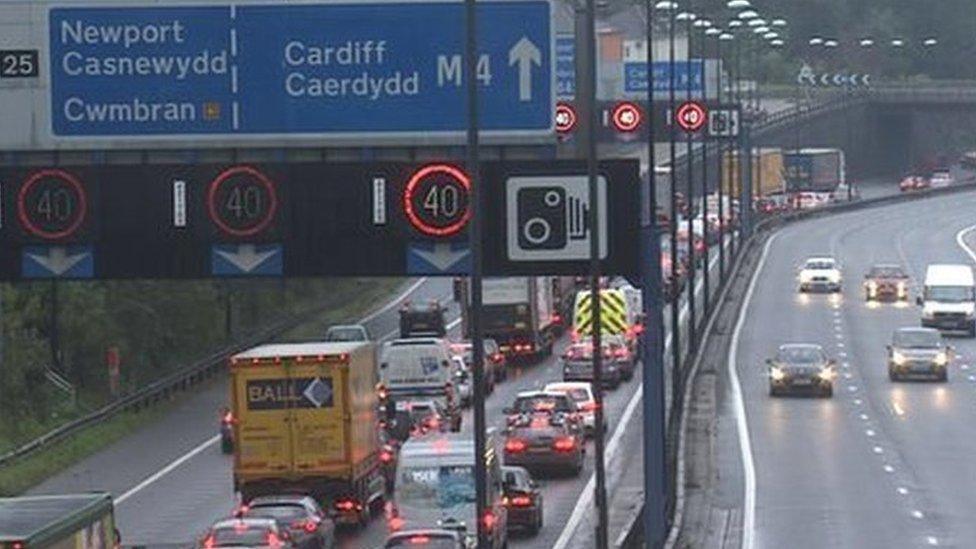
- Published28 April 2016
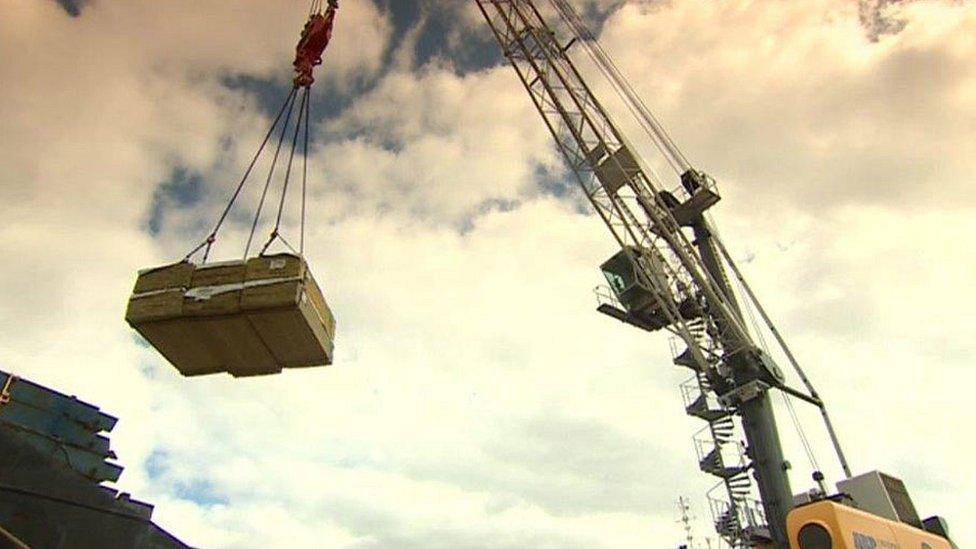
- Published17 July 2014
